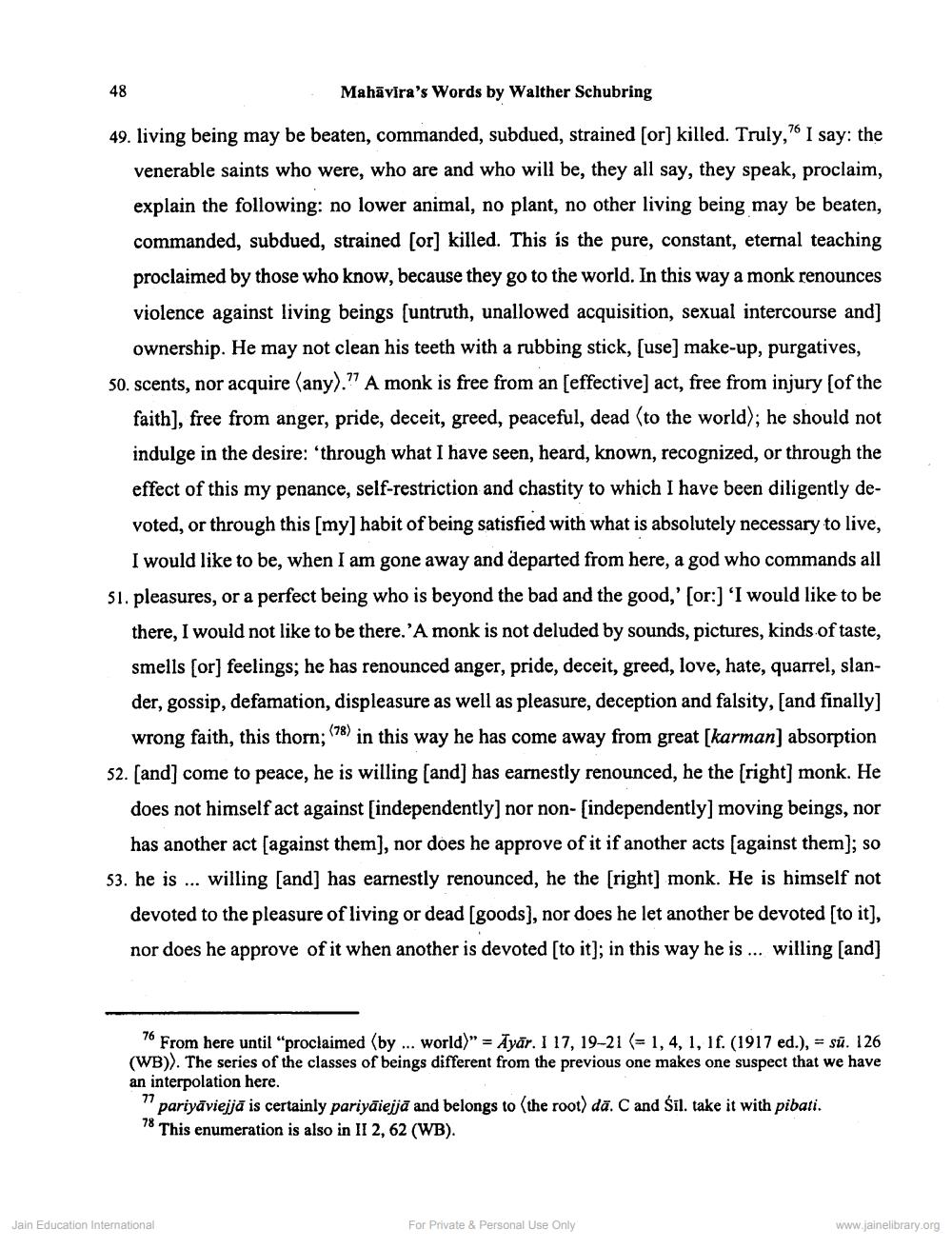________________
Mahāvīra's Words by Walther Schubring
49. living being may be beaten, commanded, subdued, strained (or) killed. Truly, I say: the
venerable saints who were, who are and who will be, they all say, they speak, proclaim, explain the following: no lower animal, no plant, no other living being may be beaten, commanded, subdued, strained (or) killed. This is the pure, constant, eternal teaching proclaimed by those who know, because they go to the world. In this way a monk renounces violence against living beings (untruth, unallowed acquisition, sexual intercourse and]
ownership. He may not clean his teeth with a rubbing stick, (use) make-up, purgatives, 50. scents, nor acquire (any).?? A monk is free from an (effective] act, free from injury (of the
faith), free from anger, pride, deceit, greed, peaceful, dead to the world); he should not indulge in the desire: 'through what I have seen, heard, known, recognized, or through the effect of this my penance, self-restriction and chastity to which I have been diligently devoted, or through this (my] habit of being satisfied with what is absolutely necessary to live,
I would like to be, when I am gone away and departed from here, a god who commands all 51. pleasures, or a perfect being who is beyond the bad and the good,' [or:) 'I would like to be
there, I would not like to be there.'A monk is not deluded by sounds, pictures, kinds of taste, smells (or] feelings; he has renounced anger, pride, deceit, greed, love, hate, quarrel, slander, gossip, defamation, displeasure as well as pleasure, deception and falsity, [and finally]
wrong faith, this thorn; (78) in this way he has come away from great [karman) absorption 52. [and] come to peace, he is willing [and] has earnestly renounced, he the [right] monk. He
does not himself act against (independently) nor non- (independently) moving beings, nor
has another act [against them), nor does he approve of it if another acts (against them]; so 53. he is ... willing [and] has earnestly renounced, he the [right] monk. He is himself not
devoted to the pleasure of living or dead (goods), nor does he let another be devoted to it), nor does he approve of it when another is devoted [to it); in this way he is ... willing [and]
76 From here until "proclaimed (by ... world)" = Ayār. I 17, 19-21 (= 1,4, 1, 1f. (1917 ed.), = sū. 126 (WB)). The series of the classes of beings different from the previous one makes one suspect that we have an interpolation here.
pariyāviejjā is certainly pariyāiejjā and belongs to the root) dā. C and Śīl. take it with pibati. 78 This enumeration is also in II 2, 62 (WB).
Jain Education International
For Private & Personal Use Only
www.jainelibrary.org




